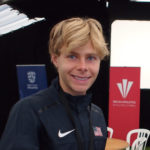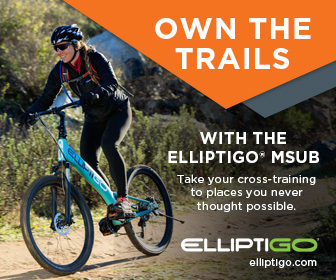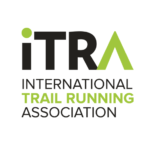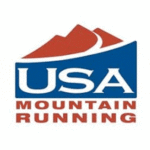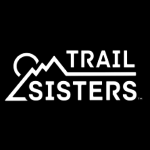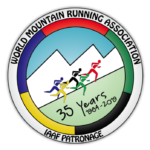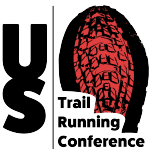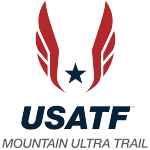
The All In Trail Coaching Scholarship, founded by coach and Brooks Running athlete Joe McConaughy, is entering its second year and aims to continue empowering young athletes seeking mentors and coaching guidance in trail running. The scholarship “provides coaching support and mentorship for promising, younger athletes, particularly those from marginalized or underserved communities.”
Two programs will be offered in 2023: the All In Trail community (online community with some in-person group events and activities) and a year-long 1:1 coaching scholarship offered free of charge to selected athletes.
The application deadline to apply for both the community program and scholarship is December 12, 2022.
Building On Year One’s Instant Success
The All In Trail Coaching Scholarship (formerly the Sub-Elite Trail Running Scholarship), launched in 2022, has already been an instant success for developing young athletes. Read more about how the scholarship program began. Joe McConaughy speaks on the program’s engagement the first year, “In the first two weeks of opening the registration last year, I had nearly fifty applicants. I only had the means to provide two or three scholarships and I didn’t want to say no to the majority of these applicants. To accommodate more athletes I expanded my pool of coaches, including Yassine Diboun, Scott Traer and Rosa Moriello, which allowed us to have nine total scholarship spots. This demand for coaching also inspired us to create the online community, the All In Trail Collective, to host office hours every two weeks and offer access to a community for people hungry to learn about the sport, but weren’t able to be selected for the limited scholarships.”

Joe McConaughy and Yassine Diboun at the CCC race in France.
From One Mile To 2,650 Miles On The Pacific Crest Trail (PCT)
Many young and talented runners lack exposure to quality trail running guidance and mentors. Those few athletes who are lucky enough likely don’t have the means to afford such services. McConaughy, himself a talented collegiate “miler” and 1,500 meter specialist for Boston College (NCAA Division 1), found himself embarking on a thru-hiking record attempt on the Pacific Crest Trail (PCT) immediately after college, and delving into trail running without a clear understanding of what he was pursuing. “After college, I just ran trails but I didn’t have much guidance or insight. I definitely wasn’t going to spend money for a coach, but I had a variety of encouraging supporters or mentors including Josh Katzman, a New England running legend with many course records. He is a very caring guy who helped me prepare for ultramarathons and thru-hiking in terms of nutrition, pacing and recovery. His methods provided a much different perspective and education from what I received in the track and field world.”
McConaughy had the classic case of “hitting the wall” in his first several trail races, not realizing the high-calorie demands from running intensely for several hours at a time. “Even after completing the PCT trail and familiarizing myself with longer efforts, it took me a while to figure out how to race trails. My first two or three races I actually bonked quite hard, unaccustomed to the effort, and assuming I only needed two or three gels to get through a fifty-mile race. I was grateful to have had a few very knowledgeable people teach me how to understand nutrition and express this as one of the key factors to proper trail racing.”
From his own struggles to adapt to trails from collegiate running, McConaughy realized the need for coaching and mentorship of young athletes transitioning into trail running from collegiate running backgrounds, “I realized there’s a gap for mentoring athletes who are intimidated by the distance or new skill sets from trail running when compared to other types of running. People struggle with the complexity of going longer on trails. In collegiate running programs, fitness and speed is prioritized above all else, yet in the trail world there are so many more variables to consider. Now, as a coach myself, I try to help younger athletes understand many of these overlooked variables, especially nutrition. That was a large inspiration behind this scholarship program.”
McConaughy also realized how his position as a coach and founder of this scholarship could not only aid younger athletes, but help fix other issues in the sport (which also expand beyond the sport itself) including a lack diversity in trail running, “In my past few years as a coach, I realized that most people who can afford me are people with the means to do so. These are often people who are more stable in their career or who come from well-to-do households. As a result, I found myself working with a lot of straight white males. I found myself thinking, ‘how do I create a mentorship opportunity for underserved communities who might not have the means to afford or be exposed to coaching’”.
McConaughy’s mission for the scholarship is focused more on the goal of inclusivity than ever before, “One of the main missions of the program this year is to reach out to underserved communities. What we ultimately see as success for this program is to elevate athletes with potential and who are engaged and feel they have a place and mission in the trail running world.”
Two of last year’s scholarship recipients, Aubrey Drake and Jarred Irving have been using their scholarships to increase diversity in the sport. Drake recently released an open letter from the LGBTQ+ community to race directors, brands, athletes and fans of the sport to increase LGBTQ+ representation. Irving has been expanding his roles in Black Men Run Phoenix and recently starting his own coaching business, responding to a lack of BIPOC coaches in the trail running world.

Photo: Joe McConaughy.
“All In” For The Future
McConaughy speaks on some of the changes to this year’s scholarship and plans for the future, “Firstly, we want to keep improving the All In Trail Collective community by keeping it more engaging and encouraging people to show up to the same races. We plan to have more in-person involvement. For the one-on-one coaching program, we now have six coaches (Scott Traer, Jess Schnier, Georgia Porter, Yassine Diboun, Rosa Moriello, and myself), and we aim to provide twelve to thirteen scholarships, up from last year’s nine.
Additionally, I’d like to spend more time collaborating with other organizations. We’re not the only group out there trying to make trail running a more inclusive space, and we could be partnering with these organizations. It will be interesting to see where our organization fits in the broader trail running space and I want to keep including more coaches to expand our reach. We also want to make sure the quality of these coaches remains constant and we can really serve the people that come to us and trust the relationships we build.”
Listed below are outlines for specific services provided by the All in Trail Community and the All In Coaching Scholarship:
All In Trail Community:
- A private online message board community (using Slack) with other trail athletes and All In coaches. We encourage dialogue on training, races, and all things trail
- Private All In Trail Strava group
- Monthly discounts on team races (like the Mesquite Canyon 50 Mile | 50K | 30K | 1/2 Marathon | 8K)
- A monthly newsletter
- Reposting of #allintrail content on our @AllInTrail
- Opt-in participation: Peer-to-peer mentoring program
- All In Coaching Scholarship
- 12 months of one-on-one coaching services* (a $2,400 value). Including: Customized training plan via Google Docs
- Training Peaks or Final Surge
- Private training Slack & Strava groups
- Tempo, track, hill and long run workouts
- Weight program consulting
- Race nutrition consulting
- Gear and fast packing consultation
- Injury consultation
- Sponsor discounts and select race entries
Who Should Apply?
The community and scholarship opportunities are available to athletes who meet the following criteria: ages 20 to 28 (older athletes will be considered, but applicants are required to explain why the program would be a good fit), resident of the US, Canada or Mexico, and a willingness to stay engaged in the community and training. The scholarship requires a 500-word written application that covers the athlete’s background, competitive goals, ways they will use their running to impact their community and overall reasons for seeking trail running mentorship. To learn more about the scholarship and to apply, visit this link https://thestringbean.co/all-in-trail-coaching-scholarship/

